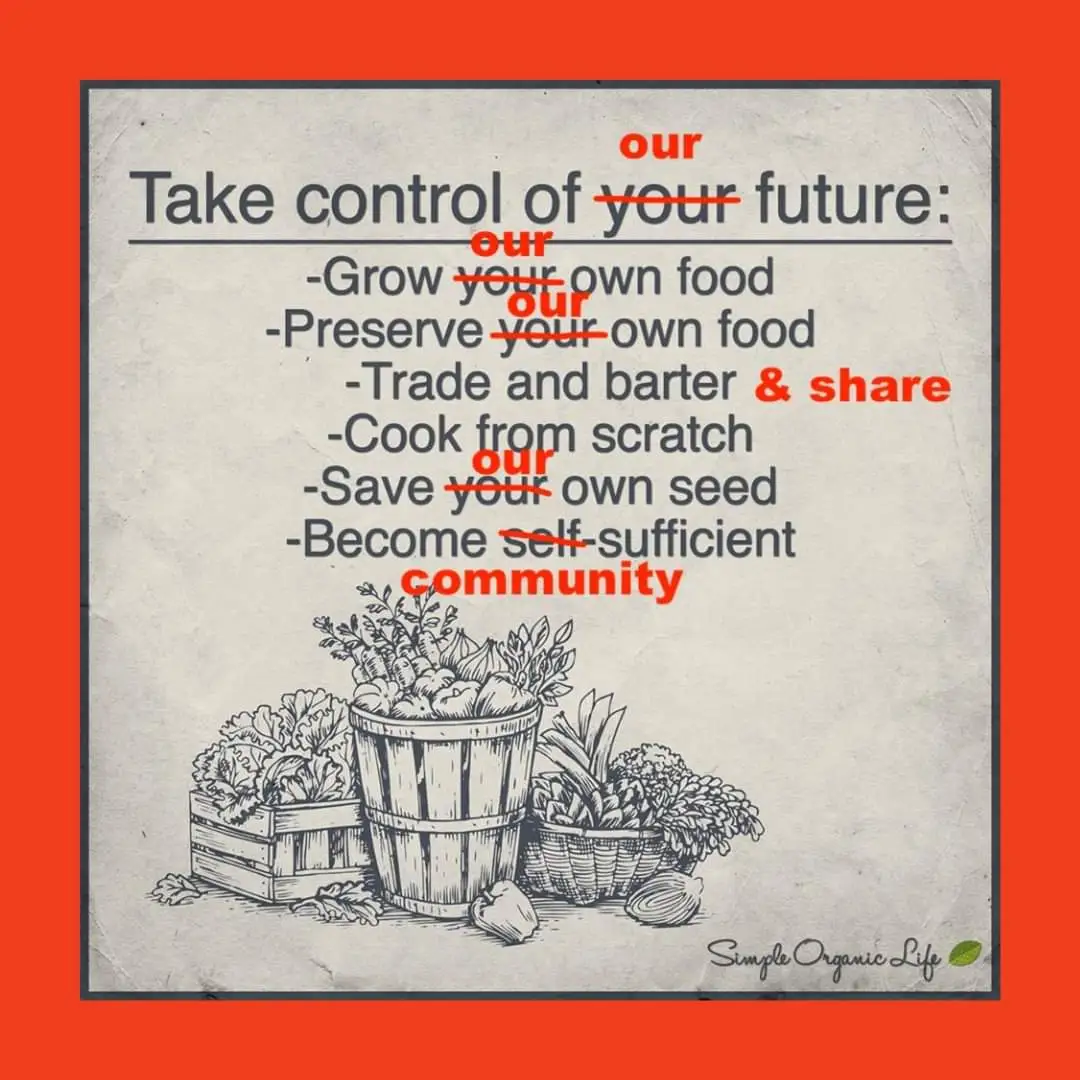Don't get me wrong, having a vegetable garden is still a great thing and far better than buying the monoculture produce shipped from halfway around the world at the store, even if your garden is just for your own family. I don't want to knock that. But to break our reliance on extractivist agriculture as a society requires more than just people with the resources to do it building private homesteads on their private property. Communities providing for each other through the commons is a foundational element of a solarpunk society.
How do we encourage this shift in thinking and doing? What would it take to break down the expectations of private property and that something you've grown is just for you, and create community mindsets where something you've grown can feed people who need it?
Where I live, there are a lot of (mostly retired, suburban, well-off) people with gardens, especially in the summer, but most of them are not involved in FNB or anything like it. It's also not common to emphasize native species. We have a wonderful public market, but most of the people even with veggie gardens don't sell there and only buy there on occasion. The way I've been trying to encourage the public market over grocery stores more has mostly been talking about how great the produce is, how many different things they have, and how convenient it is that the bus runs there. It's still a market, but at least it's small, local growers, and a local org recovers what doesn't get sold for our FNB branch to use (and composts what isn't good, for the local community garden to use) instead of throwing it away. But the only way I can think of to get the idea out there that people should share what they grow is to flat-out say, "you should share what you grow", which doesn't seem like it would win many people over.

I'm trying to shift away from transactional approaches. I don't want to replicate markets and debt in my community, and I worry that asking for a share of the harvest as a "price" for lending out tools could perpetuate that instead of breaking away from it.
Interestingly I find that many of people around me who do start to engage in sharing activities still like holding on to some transactional approach - giving out tokens, noting down hours of work ... It's like people feel freaked out by just receiving something out of a void, or giving it away into a void, where the only thing between oneself and misery is the kindness of others. Even though a gift economy creates less overhang by not having to register transactions it might take one or two more generations of casual trade and barter and getting annoyed with token systems before people start feeling comfortable.
I like that you make a conscious effort to break that scheme, but it might ease some people into sharing their excess.
There are some ways to make it less obviously transactional. For example in the rural town where my parents live there is an annual event where people can bring apples and other fruits to make juice from (with a professional juice making machine) and it is encouraged to bring excess fruits and share them.